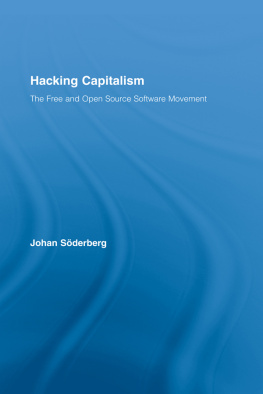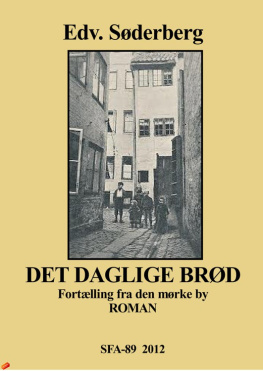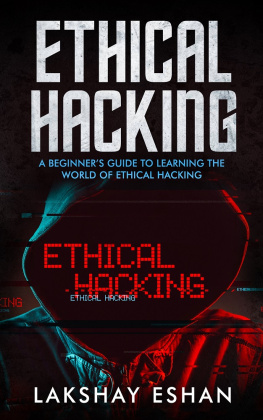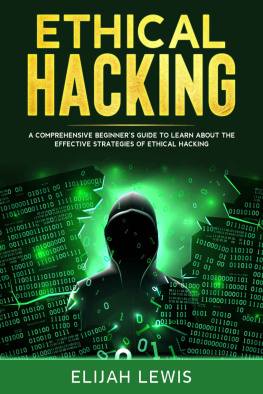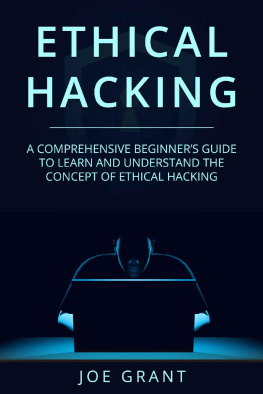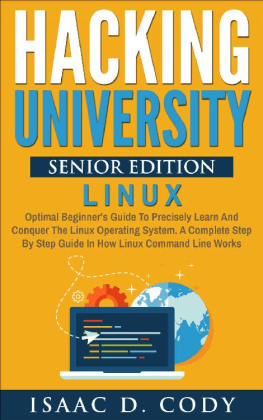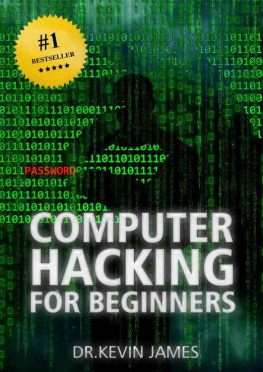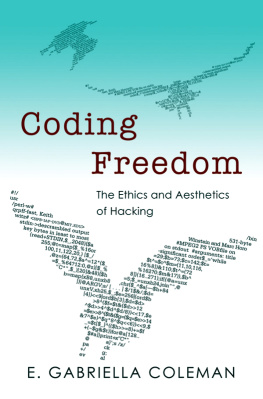Söderberg - Hacking capitalism: the free and open source software movement
Here you can read online Söderberg - Hacking capitalism: the free and open source software movement full text of the book (entire story) in english for free. Download pdf and epub, get meaning, cover and reviews about this ebook. City: New York, year: 2015, publisher: Taylor and Francis;Routledge, genre: Politics. Description of the work, (preface) as well as reviews are available. Best literature library LitArk.com created for fans of good reading and offers a wide selection of genres:
Romance novel
Science fiction
Adventure
Detective
Science
History
Home and family
Prose
Art
Politics
Computer
Non-fiction
Religion
Business
Children
Humor
Choose a favorite category and find really read worthwhile books. Enjoy immersion in the world of imagination, feel the emotions of the characters or learn something new for yourself, make an fascinating discovery.
Hacking capitalism: the free and open source software movement: summary, description and annotation
We offer to read an annotation, description, summary or preface (depends on what the author of the book "Hacking capitalism: the free and open source software movement" wrote himself). If you haven't found the necessary information about the book — write in the comments, we will try to find it.
Söderberg: author's other books
Who wrote Hacking capitalism: the free and open source software movement? Find out the surname, the name of the author of the book and a list of all author's works by series.
Hacking capitalism: the free and open source software movement — read online for free the complete book (whole text) full work
Below is the text of the book, divided by pages. System saving the place of the last page read, allows you to conveniently read the book "Hacking capitalism: the free and open source software movement" online for free, without having to search again every time where you left off. Put a bookmark, and you can go to the page where you finished reading at any time.
Font size:
Interval:
Bookmark:
First published 2008
by Routledge
Published 2015 by Routledge
2 Park Square, Milton Park, Abingdon, Oxon OX14 4RN
Simultaneously published in the UK
by Routledge
711 Third Avenue, New York, NY 10017 USA
Routledge is an imprint of the Taylor & Francis Group, an informa business
2008 Taylor & Francis
Typeset in 10 point Sabon by IBT Global.
Global.
All rights reserved. No part of this book may be reprinted or reproduced or utilisedin any form or by any electronic, mechanical, or other means, now known or hereafterinvented, including photocopying and recording, or in any information storage orretrieval system, without permission in writing from the publishers.
Trademark Notice: Product or corporate names may be trademarks or registered trademarks, and are used only for identification and explanation without intent to infringe.
Library of Congress Cataloging in Publication Data
Sderberg, Johan, 1976
Hacking capitalism : the free and open source software movement / Johan Soderberg.
p. cm. (Routledge research in information technology and society ; 8)
Includes bibliographical references and index.
ISBN 978-0-415-95543-0 (hardback : alk. paper)
1. Open source software. 2. Computer softwareDevelopmentSocial aspects.
I. Title.
QA76.76.S46S63 2007
005.3dc22
2007018756
ISBN13: 978-0-415-95543-0 (hbk)
ISBN13: 978-0-203-93785-3 (ebk)

1. Reinventing Government in the Information Age
International Practice in IT-Enabled Public Sector Reform
Edited by Richard Heeks
2. Information Technology in Government
Britain and America
Helen Margetts
3. Information Society Studies
Alistair S. Duff
4. National Electronic Government
Building an Institutional Framework for Joined Up Government A Comparative Study
Edited by Martin Eifert and Jan Ole Pschel
5. Local Electronic Government
A Comparative Study
Edited by Helmut Drke
6. National Governments and Control of the Internet
A Digital Challenge
Giampiero Giacomello
7. The Politics of Cyberconflict
Security, Ethnoreligious and Sociopolitical Conflicts
Athina Karatzogianni
8. Internet and Society
Social Theory in the Information Age
Christian Fuchs
9. Hacking Capitalism
The Free and Open Source Software Movement
Johan Sderberg
Quite a number of people have helped me in making this book. I would especially like to thank George Dafermos and Johan Lindgren who have supported me throughout the five years that I have been working on the project. Im also indebted to Jenny Fornell and Mark Elam for extensive and constructive engagement with the manuscript. Other key contributions have been made by Stefan Merten, Alan Toner, Roul Victor, Graham Seaman, Olle Lindell, Tove Karlsson, Mathias Klang and Bo Gransson, and many more people, to whom I owe a great deal for various reasons. The book is dedicated to all of you out there who make something new and interesting with it.
Play Struggle of Hackers
In this chapter the hacker movement is taken as a showcase of the concept of play struggle. Previously in the book it has been argued that play stands on equal terms with work. Both activities are enrolled by capital as sources of surplus value and are therefore contested points of struggle. Needless to say, the conflicts surrounding play activities diverge greatly from the conflicts centred on the workplace. The axis of labour struggle is the wage relation, and clashes erupt on pay levels, working hours, and the like. Play struggle pivots around the same axis, with the difference that its chosen strategy is to withdraw from the wage relation. In collaborative and institutionalised forms of play, such as in FOSS projects, the labour market is no longer the chief principle for organising labour power. Needs are produced and satisfied in ways not directly submitted to the commodity form. The motor of this development is a gut reaction against alienated labour. Karl Marxs critique of alienation is the beginning and end of an understanding of the hacker movement. Of course, with few exceptions, the propagators of play struggle do not frame their activity in such terms. Their engagement is spontaneous and they are largely unaware of the forces that confront them. A major problematic of the chapter is how the hacker movement can constitute itself as a political subject in spite of a general lack of class consciousness. It is proposed that a radicalisation of the hacker movement will be inspired by two factors. Firstly, the play-activity is in itself a source of knowledge. Collective forms of play strengthen solidarity among players and foster viewpoints that are at odds with dominant ideology. Secondly, for the very reason that play is destabilising to the status quo , it becomes a target of repression. At the same time as municipalities and firms are enlisting FOSS developers, a legal and technical infrastructure is advanced by state and capital that threatens to destroy the hacker community. Hackers are forced to mobilise politically in order to defend the foundations of their way of life. It is in these unfamiliar terms that the politics of play struggle is acted out. The principal goals of the hacker movement, free access to information and an open computer architecture, are not primarily desired out of ideological conviction. These aims are prerequisites for the community to continue to flourish. Their approach to politics set play struggles apart from, and, occasionally in conflict with, the priorities of traditional, leftist movements. While an activist might be tempted to describe the bias of hackers as a lack of political awareness, there is also a merit to the hackers brand of politics. Like most New Left movements emerging after 1968, the hacker movement exists to the side of the workplace and debates issues not overtly concerned with work. Unlike most of its political siblings, however, the question about work is at the heart of hacking. It relates to wage labour as a negation. Thus, just like the labour movement before, hackers challenge the forms of creation and production in society. It is for this reason that the hacker movement both actualises Marxism and causes interesting problems to Marxist theory.
A central theme running through Karl Marxs oeuvre is his critique of alienated labour. We will give a thorough account on this matter since it provides a key piece of the puzzle to our further discussion on hackers. Readers that feel they are familiar with Marxs theory of alienation might choose to jump ahead to the next paragraph. It was in his earlier writings that Marx referred directly to the concept of alienation. Most of his thoughts on alienation can be found in the Economic and Philosophic Manuscripts of 1844 . Nonetheless, the same concerns and viewpoints informed the economic-political studies that he conducted later in life. The term alienation originates from the history of philosophy. Marx borrowed the idea from Hegel and the young Hegelians, most notable of them Ludwig Feuerbach. The latter used the concept to describe how man weakens himself by projecting his virtues on an imaginary God. The divinity becomes an alien force not recognisable to man as his creation. Marx continued the atheist critique in his own inquiry into alienation. He drew parallels between the religious belief system and the ideological mirror world that bourgeoisie society veils itself in. The touching stone of Marxs alienation theory was the capitalist labour process. Under capitalism the worker is forced to sell herself as a commodity on the labour market. The products that she produces are subsequently claimed by her employer. Only as commodities can the worker take possession again of some of her objectified labour. Just as with God, the worker doesnt recognise the object as her own creation. The object gains an existence independent of its creator. And since the worker depends on the item for satisfying her vital needs, the object becomes an alien power confronting her. Hence, because of the abstraction of commodity exchange, power relations between humans take the appearance of relations between things. The worker, who is alienated from the result of her labour, is by the same token alienated during the labour process. When work is subdued under capitalist relations, the sole purpose of her endeavours is to produce commodities for the market. The imperative of market competition comes to define every moment of her operations. Even if the labourer is more privileged than the coal miners of Marxs days or the maquiladora workers of our time, even if some concessions have been made for her comfort, she is alienated by the very principle for which she is set to work, namely: the expansion of capital. Alienation is present because she does not experience her work as a need in itself, but merely as a means to satisfy needs external to her work. And, Marx inserted, that which applies to a persons relation to her work also applies to her relation to other people. The other human being is not any longer an end, but, just like work, a means for something else. The outcome can be witnessed in the strife and fragmentation of bourgeoisie society. Possessive individualism is the trait of an era dominated by alienated labour, and, subsequently, private property. The ramifications of the injustice of alienation become clear when we consider the role that Marx assigned to work. It is in labour that humans stand apart from other animals. Of interest to our later discussion is that among the short list of criteria that distinguishes humans from animals, Marx added that humans form objects in accordance with the laws of beauty. When those objects are taken away from her, she is not merely robbed in a narrow, economical sense. She is denied her very existence as a human species being.
Font size:
Interval:
Bookmark:
Similar books «Hacking capitalism: the free and open source software movement»
Look at similar books to Hacking capitalism: the free and open source software movement. We have selected literature similar in name and meaning in the hope of providing readers with more options to find new, interesting, not yet read works.
Discussion, reviews of the book Hacking capitalism: the free and open source software movement and just readers' own opinions. Leave your comments, write what you think about the work, its meaning or the main characters. Specify what exactly you liked and what you didn't like, and why you think so.

